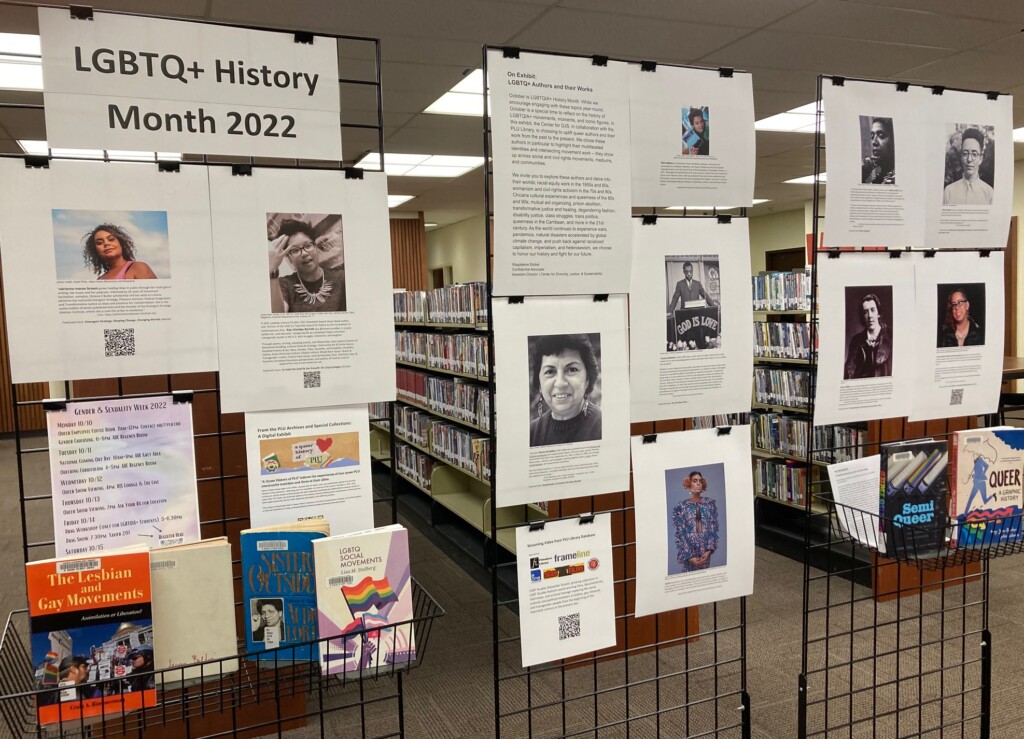Page 11 • (467 results in 0.02 seconds)
-
a systematic investigation—including research development, testing, and evaluation—involving a living individual about whom you obtain: data through intervention or interaction (including surveys
investigation—including research development, testing, and evaluation—involving a living individual about whom you obtain: data through intervention or interaction (including surveys and interviews), and/or identifiable private information in a form that can be linked with that individual. designed to develop or contribute to “generalizable knowledge.” Findings disseminated with the intent to influence behavior, practice, theory, future research designs, etc. are contributing to generalizable knowledge.When
-
The International Mathematics and Statistics Student Research Symposium (IMSSRS) will take place virtually on Saturday, April 15, 2023 . This is a free conference for all mathematics and statistics students (high school, community college, undergraduate, graduate) to share their research with the rest of the…
out with like-minded math and stat enthusiasts. Presenters must be students, but everyone is welcome as an attendee. Abstract submission and registration deadlines are both March 24. To learn more, please visit our website. Read Previous Research Experience for Undergraduates in Graph Theory and Computational Mathematics Read Next Math Enthusiast Series: “Creative Collaborations in Mathematical Art” LATEST POSTS Dept of Energy Computational Science Graduate Fellowship October 30, 2024 Allen
-
Product Website: www.heartmathstore.com Cost: $199.99
related tool or strategy do you use that other PLU faculty might like to try in their courses?“I try to incorporate the use of technology whenever possible –to help students see the connection between theory and personal application of course content. The students we have now have grown up with technology; they not only understand, but live through technology and expect instant access to information; which makes connecting theory to real life application and integration even more imperative.”What are
-
Statistics provides a strong career path with excellent opportunities, and statisticians are in high demand.
; however, there are rewards from such substantial mathematical study: a strong employment outlook, high pay, and an opportunity to work in an intellectually stimulating and diverse environment. Although statisticians are mathematical specialists, many work in companies, organizations and governmental agencies where the applications, rather than theory, are the primary focus. Statistics is one of the top professions for career growth potential and opportunity. Some of the possibilities for careers in
-

Professor of Mathematics | Department of Mathematics | edgartj@plu.edu | 253-535-7238 | Tom grew up in Colorado and attended college at Dickinson College in Carlisle, Pennsylvania.
Tom Edgar Professor of Mathematics he/him/his Phone: 253-535-7238 Email: edgartj@plu.edu Office Location: Morken Center for Learning & Technology - 256 Status:On Leave Curriculum Vitae: View my CV Professional Biography Additional Titles/Roles Editor of Math Horizons magazine Education Ph.D., Mathematics, University of Notre Dame, 2009 M.S., Mathematics, Colorado State University, 2004 B.S., Mathematics, Dickinson College, 2002 Areas of Emphasis or Expertise Abstract Algebra (Group Theory
-

Shakespeare’s most famous tragedies get a second look in Goodnight Desdemona (Good Morning Juliet) at Pacific Lutheran University. The Shakespearean-inspired production runs in Studio Theater on March 10, 11, 12, 18 and 19 at 7:30pm and March 20 at 2pm. Constance, a quirky professor, attempts…
Studio Theater production plays with theatricality and scholarship Posted by: Mandi LeCompte / March 3, 2016 March 3, 2016 Shakespeare’s most famous tragedies get a second look in Goodnight Desdemona (Good Morning Juliet) at Pacific Lutheran University. The Shakespearean-inspired production runs in Studio Theater on March 10, 11, 12, 18 and 19 at 7:30pm and March 20 at 2pm. Constance, a quirky professor, attempts to go against the grain and prove her controversial theory about the heroines of
-
Shakespeare’s most famous tragedies get a second look in Goodnight Desdemona (Good Morning Juliet) at Pacific Lutheran University. The Shakespearean-inspired production runs in Studio Theater on March 10, 11, 12, 18 and 19 at 7:30pm and March 20 at 2pm. Constance, a quirky professor, attempts…
Studio Theater production plays with theatricality and scholarship Posted by: Mandi LeCompte / March 3, 2016 March 3, 2016 Shakespeare’s most famous tragedies get a second look in Goodnight Desdemona (Good Morning Juliet) at Pacific Lutheran University. The Shakespearean-inspired production runs in Studio Theater on March 10, 11, 12, 18 and 19 at 7:30pm and March 20 at 2pm. Constance, a quirky professor, attempts to go against the grain and prove her controversial theory about the heroines of
-

October is LGBTQIA+ History Month. While we encourage engaging with these topics year-round, October is a special time to reflect on the history of LGBTQIA+ movements, moments, and iconic figures. In this exhibit, the Center for DJS, in collaboration with the PLU Library, is choosing…
woman.”” “She was an activist-author who never shied away from difficult subjects, but instead, embraced them in all their complexity. Lorde was a critic of second-wave feminism, helmed by white, middle-class women, and wrote that gender oppression was not inseparable from other oppressive systems like racism, classism and homophobia. She has made lasting contributions in the fields of feminist theory, critical race studies and queer theory through her pedagogy and writing.” – from https
-
DEDICATION FOR 3 GRAVITATIONAL-WAVE ANTENNAS Feb 3rd, 8:30-10:00am (PST ) This international event will be held online on when a prestigious IEEE Milestone in Electrical Engineering and Computing will be dedicated for the massive Gravitational-Wave Antennas in Hanford, WA, Louisiana and Italy. They collectively confirmed…
DEDICATION FOR 3 GRAVITATIONAL-WAVE ANTENNAS Posted by: alemanem / February 3, 2021 February 3, 2021 DEDICATION FOR 3 GRAVITATIONAL-WAVE ANTENNAS Feb 3rd, 8:30-10:00am (PST) This international event will be held online on when a prestigious IEEE Milestone in Electrical Engineering and Computing will be dedicated for the massive Gravitational-Wave Antennas in Hanford, WA, Louisiana and Italy. They collectively confirmed Albert Einstein’s 1916 General Theory of Relativity which predicted the
-
The Department of Political Science is proud to present the 2023 Senior Capstones. The presentations will be given on May 24th in Xavier Hall, Room 201.
Harassment as a Female in the Washington State Legislature”.Ingri J. Bernal Salgado``Beyond the Blue Bins: Examining the Complexities of Recycling in Washington State.``Grant D. HoskinsNavigating a Theoretical Approach to Norway’s Government Pension Fund Global: How the Scandinavian Powerhouse will Preserve their Oil Wealth Management Success into the FutureQuan T. HuynhTrueblood: The Dichotomy of Washington's Moral Political Culture and Its Failure to Uphold JusticeAaron R. MillerQueer Theory
Do you have any feedback for us? If so, feel free to use our Feedback Form.


